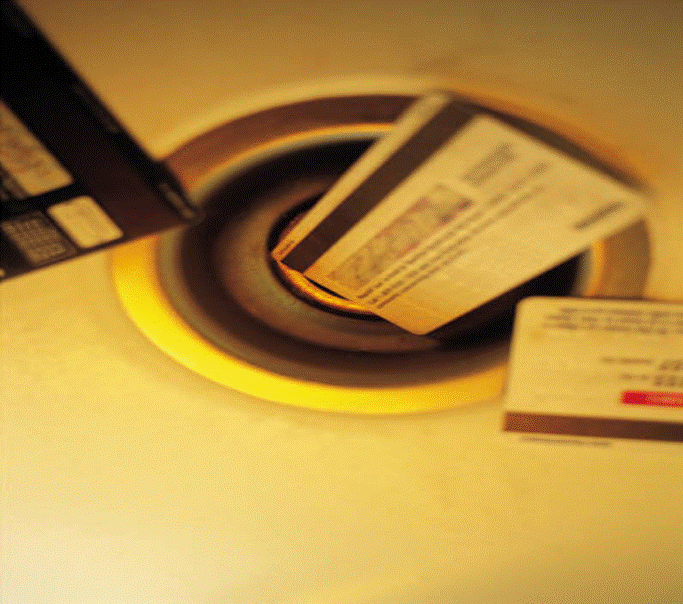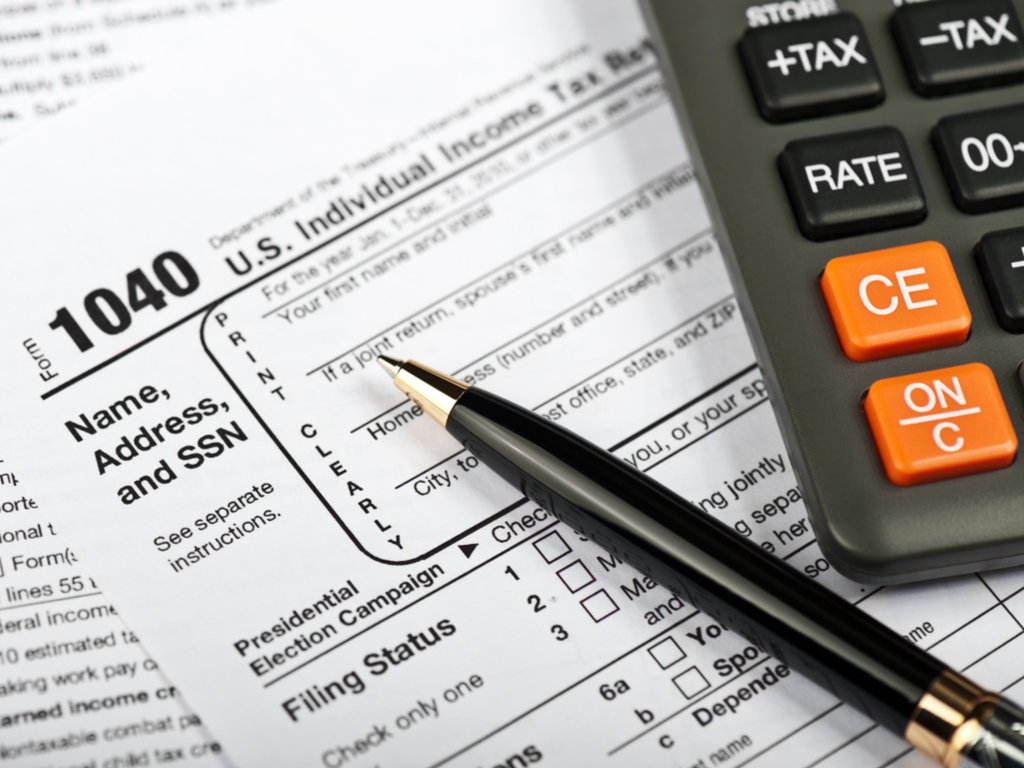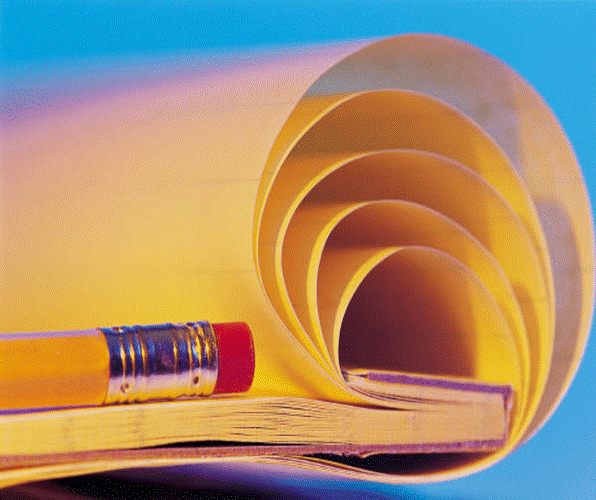 Here is an old saying that “A fool and his money are soon parted.” No one wants to be considered a fool or have foolish financial habits. However, many of us unknowingly develop foolish financial habits without ever realizing it until it is too late. The good news is we can work on developing new financial habits. Here is a list of some foolish financial habits. Take the time to read through the list and see if there is an area of your personal finances that you need to work on improving. If so, get started today. There are countless free resources online. If needed, seek out a qualified expert to help you get your finances in order. It is never too late to start working on improving your personal finances.
Here is an old saying that “A fool and his money are soon parted.” No one wants to be considered a fool or have foolish financial habits. However, many of us unknowingly develop foolish financial habits without ever realizing it until it is too late. The good news is we can work on developing new financial habits. Here is a list of some foolish financial habits. Take the time to read through the list and see if there is an area of your personal finances that you need to work on improving. If so, get started today. There are countless free resources online. If needed, seek out a qualified expert to help you get your finances in order. It is never too late to start working on improving your personal finances.
10. Failure to Review Your Fixed Expenses – When was the last time that you went through your monthly fixed expenses for cell phone bills, car & home insurance, medical and dental insurance plans, health club memberships, etc. and shopped for more competitive rates and lower costs? It is easy to get into a routine each month and pay our bills without taking the time to review each expense and see if there are more affordable options that provide the same benefits. This should be a financial exercise that you go through at least once or twice a year. Business is very competitive and the economic crisis has forced many businesses to get more competitive.
9. Eating Out Too Often – There is nothing wrong with going out to eat occasionally. However, going out to eat is far more expensive than eating at home. The real question to ask yourself is how often are you eating out and how much are you spending eating out on a monthly basis? We never stop to think about eating out as a major expense because it is just food. It is not a fixed payment like a car loan or house payment. However, most families spend thousands of dollars annually eating out at fast food and restaurants. Save your receipts for 30 days and also review your credit card statement at the end of the month. Take the time to total every dollar you spent purchasing food or drinks outside of your groceries. You may be shocked.
8. Failure to Protect Your Credit Rating – Maintaining a high credit score is absolutely critical today. Your credit score is a direct reflection of how you have handled your financial obligations. Your credit score impacts your interest rate on mortgage loans, auto loans, and consumer credit. It may also be used in conjunction with securing employment, renting housing, obtaining auto insurance, etc. Therefore, it is essential that you do everything you can to protect your credit rating.
7. Lack of Financial Knowledge – It is easy to get overwhelmed when we start thinking about our personal finances regarding investing, saving for retirement, trusts, wills, real estate, life insurance, etc. As a result, many people never take any action. This is unacceptable. We must accept full responsibility for the outcome of our financial lives. We must make a commitment to improving our financial knowledge. Our increased financial knowledge will help educate and empower us to make informed financial decisions that impact every area of our lives. Our increased financial literacy will help us understand the recommendations of the experts that we seek out for additional advice and input with our personal finances.
6. Keeping Up with the Jones’s – Lifestyle choices are unknowingly consuming the financial future of millions of people. Why? Because they may only be able to support their lifestyle through the use of credit cards and consumer loans for automobiles, boats, RV’s, vacations, dining out, etc. As a result of their personal debt and lifestyle choices, they are unable to save any of their hard earned money for themselves to their fund retirement accounts, pay college tuition for their children or even fund a simple savings account. If this is the case it may be time to simplify life, sell a few toys and payoff some debt.
5. Failure to Plan & Save for Retirement – The vast majority of people never stop to plan for retirement until they are close to their retirement age. Unfortunately, they will never be able to retire because they do not have enough time to save all of the money they need to retire. Therefore, it is critical to start planning and saving for retirement as soon as possible. It is also absolutely critical to take advantage of employer funded matching contributions for 401k plans or other retirement plans offered. Retirement planning is an area where it would be very beneficial to meet with a financial planner to help work on specific retirement goals and establishing a plan to achieve those goals.
4. No Emergency Fund – It is a lack of personal savings that forces people to use their credit cards or obtain personal loans to pay for the expenses they incur in their lives. Many of these expenses are unplanned expenses for car repairs, kid’s braces, home repairs, etc. Unfortunately, these large expenses dramatically impact their overall debt. As a result of the additional unplanned debt, they do not have the ability to ever get debt free or start saving money on a regular basis. Set up a separate savings account and get started today setting money aside every paycheck. An emergency fund can be funded from the savings you create by reducing or eliminating unnecessary expenses in your life.
3. Impulse Purchases – How many times have you ever made an impulse purchase for an item in a store, online or even a very large purchase like a new car, boat, expensive jewelry, etc. that you end up regretting later? We all need to slow down and truly ask ourselves are these purchases necessary or discretionary? More importantly, are these impulse purchases helping us achieve our financial goals or are we consuming our financial future with each purchase?
2. Living on Credit Cards – The convenience of credit cards over cash is the reason many people are in deep financial trouble. It is far to easy to pull out a credit card to pay for a cup of coffee, a new pair shoes, a nice dinner or even everyday living expenses from groceries to gasoline. As a result, we never stop to consider the impact of all of these small choices on our overall debt until it is too late and we have maxed out our credit card limits. We will never be able to achieve our financial goals for our lives if we continue to carry credit card debt. Credit Card debt must be eliminated. The next time you start to use a credit card stop and ask yourself if you would make the same decision if you had to pay cash?
1. Spending More Than You Earn – This is the #1 Foolish Financial habit that must be eliminated in our lives if we ever want to get control of our personal finances, become debt free and start saving money is to stop spending more than we earn. The only way to eliminate this foolish financial habit is to start with a budget. We need to see where all of our money is going on a monthly basis. We need to set some boundaries based on our income for our expenses. We need to look for creative ways to cut our expenses and still enjoy life. We need to set some clear financial goals that we are committed to achieving. Because without clear financial goals and some financial boundaries we will continue to consume our financial future one purchase at a time until it is too late and we have run out of time and options. Our hopes, goals and dreams for our lives are far too important for us to become slaves to our debt and lifestyle and miss out on the life we have always dreamed of achieving. Start today working on improving your financial habits and future.
Do you know someone that might benefit from this article? If so, please forward this article to them.
I hope you will follow Fiscal Literacy on Twitter, Facebook or sign up for our free personal finance, news & updates.
Copyright © 2011 FiscalLiteracy.com, All Rights Reserved
Please take the time to click on Twitter or Facebook link and share this article or leave a comment. Thank You!
 CalCPA Institute produced a great video entitled, Money Talks: What Do You Know About Financial Literacy. It is a very entertaining and enlightening video on Americans viewpoint of their personal finances. The film was shot out in public asking people a series of questions about money, credit cards, debts, spending habits, personal budgets, their finances, etc. I hope you will take a few minutes and watch the video. If so, think about how you might respond to the questions being asked on the video. I really enjoyed the video. I think you will enjoy it as well.
CalCPA Institute produced a great video entitled, Money Talks: What Do You Know About Financial Literacy. It is a very entertaining and enlightening video on Americans viewpoint of their personal finances. The film was shot out in public asking people a series of questions about money, credit cards, debts, spending habits, personal budgets, their finances, etc. I hope you will take a few minutes and watch the video. If so, think about how you might respond to the questions being asked on the video. I really enjoyed the video. I think you will enjoy it as well.

 Clearly written financial goals are absolutely essential for anyone that is committed to achieving financial freedom in their lifetime. It is our clearly stated financial goals that we have committed to writing that will compel us to take action to achieve financial freedom in our own lives.
Clearly written financial goals are absolutely essential for anyone that is committed to achieving financial freedom in their lifetime. It is our clearly stated financial goals that we have committed to writing that will compel us to take action to achieve financial freedom in our own lives. The 2011 Retirement Confidence Survey was just released by the Employee Benefit Research Institute, EBRI. It reveals the current outlook and sentiments of American workers on their finances and their ability to retire. The report is filled with a variety of troubling statistics regarding the financial condition of most Americans.
The 2011 Retirement Confidence Survey was just released by the Employee Benefit Research Institute, EBRI. It reveals the current outlook and sentiments of American workers on their finances and their ability to retire. The report is filled with a variety of troubling statistics regarding the financial condition of most Americans. Here is a simple fun exercise you can do to work on improving your personal finances. It is credit card fasting and is exactly what the name implies and is no different than fasting to improve your physical health. There are countless reports and experts that promote the benefits of fasting for our physical health. Fasting for our physical health gives our bodies a rest, allows them to recover and can restore our health.
Here is a simple fun exercise you can do to work on improving your personal finances. It is credit card fasting and is exactly what the name implies and is no different than fasting to improve your physical health. There are countless reports and experts that promote the benefits of fasting for our physical health. Fasting for our physical health gives our bodies a rest, allows them to recover and can restore our health. “Pay yourself first” is not a suggestion.
“Pay yourself first” is not a suggestion. It is tax time. Millions of Americans will be receiving a tax refund. A tax refund is a nice annual influx of cash. How are you planning on spending your tax refund? Will the money be used to buy a new big screen TV, take a family vacation, a down payment on a new car or use it to pay down credit card debt? It always seems like everyone has a plan to spend their refund. I guess that is good news for our economy but may not be the best news for us personally.
It is tax time. Millions of Americans will be receiving a tax refund. A tax refund is a nice annual influx of cash. How are you planning on spending your tax refund? Will the money be used to buy a new big screen TV, take a family vacation, a down payment on a new car or use it to pay down credit card debt? It always seems like everyone has a plan to spend their refund. I guess that is good news for our economy but may not be the best news for us personally. April has been designated National Financial Literacy Month. The purpose of National Financial Literacy Month is to urge Americans to work on improving their personal finances and financial literacy. There are some great free resources that are available through different government agencies on a variety of different personal finance topics. Here is a brief overview of one of the free resources that are available to anyone that is looking to improve their financial literacy or is seeking information on specific financial topics.
April has been designated National Financial Literacy Month. The purpose of National Financial Literacy Month is to urge Americans to work on improving their personal finances and financial literacy. There are some great free resources that are available through different government agencies on a variety of different personal finance topics. Here is a brief overview of one of the free resources that are available to anyone that is looking to improve their financial literacy or is seeking information on specific financial topics.  Here is an old saying that “A fool and his money are soon parted.” No one wants to be considered a fool or have foolish financial habits. However, many of us unknowingly develop foolish financial habits without ever realizing it until it is too late. The good news is we can work on developing new financial habits. Here is a list of some foolish financial habits. Take the time to read through the list and see if there is an area of your personal finances that you need to work on improving. If so, get started today. There are countless free resources online. If needed, seek out a qualified expert to help you get your finances in order. It is never too late to start working on improving your personal finances.
Here is an old saying that “A fool and his money are soon parted.” No one wants to be considered a fool or have foolish financial habits. However, many of us unknowingly develop foolish financial habits without ever realizing it until it is too late. The good news is we can work on developing new financial habits. Here is a list of some foolish financial habits. Take the time to read through the list and see if there is an area of your personal finances that you need to work on improving. If so, get started today. There are countless free resources online. If needed, seek out a qualified expert to help you get your finances in order. It is never too late to start working on improving your personal finances.  In today’s high tech world it is easy to get overwhelmed looking for the latest program, smart phone application or gadget to help you take control of our personal finances. While technology can help streamline the process of capturing or reviewing our personal finances it should not become the focus or the excuse we use for not taking control of our money, debt, finances, etc.
In today’s high tech world it is easy to get overwhelmed looking for the latest program, smart phone application or gadget to help you take control of our personal finances. While technology can help streamline the process of capturing or reviewing our personal finances it should not become the focus or the excuse we use for not taking control of our money, debt, finances, etc. Nothing is more important than each of us taking control of our personal finances. We cannot rely on someone else to make our decisions for us. We need to accept the responsibility for our actions and the outcomes of our lives. I believe this is great news for all of us.
Nothing is more important than each of us taking control of our personal finances. We cannot rely on someone else to make our decisions for us. We need to accept the responsibility for our actions and the outcomes of our lives. I believe this is great news for all of us.

